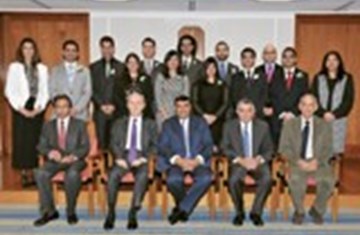IIS Publishes The Spirit of Tolerance in Islam
The IIS is pleased to announce the publication of The Spirit of Tolerance in Islam by Reza Shah-Kazemi. In the book, the author demonstrates, using predominantly western historical sources, that religious tolerance was in fact the historical norm that characterised the relationship between Muslims and non-Muslims, and that intolerance was a clear deviation from this norm.
He further argues that it was this Muslim norm of religious tolerance that significantly contributed to the process by which western Christendom shed its own history of religious intolerance, and came to enshrine the principle of religious tolerance at the heart of liberal political discourse.
In the contemporary age, it would seem the prevalent perception of Islam in the West, both in academia and among the public at large, is determined much more by media stereotypes than by scholarly objectivity. Thus, the Islamic faith is often regarded as fanatical, dogmatic and exclusivist by nature, and Muslims are regarded as having been correspondingly intolerant throughout their history. Reza Shah-Kazemi marshalls an impressive array of historical evidence, in a concise and accessible style, showing how the principle of tolerance was manifested in such diverse dynasties as the Turkish Ottomans and the Ismaili Fatimids, the Umayyads of Spain, and the Mughals of India. He then shows how this tolerant praxis is rooted morally, legally, theologically and spiritually in the message of the Qur’an and the conduct of Prophet Muhammad.
Dr Shah-Kazemi’s purpose in highlighting the centrality of tolerance in Muslim thought is to reveal the extent to which contemporary manifestations of Muslim intolerance and fanaticism subvert the rich tradition of inclusivism, pluralism and tolerance amongst Muslims. He also argues that contemporary Muslims keen to revive their spiritual legacy need not be bound by the political and legal institutions which historically gave expression to the principle of tolerance; rather, it is the essential and universal trajectories of the Qur’an and the prophetic paradigm that should be followed if one wishes to effectively revive and creatively transmit the rich legacy of Muslim ethics and spirituality.
Related Pages on the IIS Website:
- Academic Article: The Metaphysics of Interfaith Dialogue: A Qur’anic Perspective by Dr Reza Shah-Kazemi
-
Lifelong Learning Article: Combating Religious Intolerance: A Perspective from Muslim Contexts by Prof Azim Nanji






